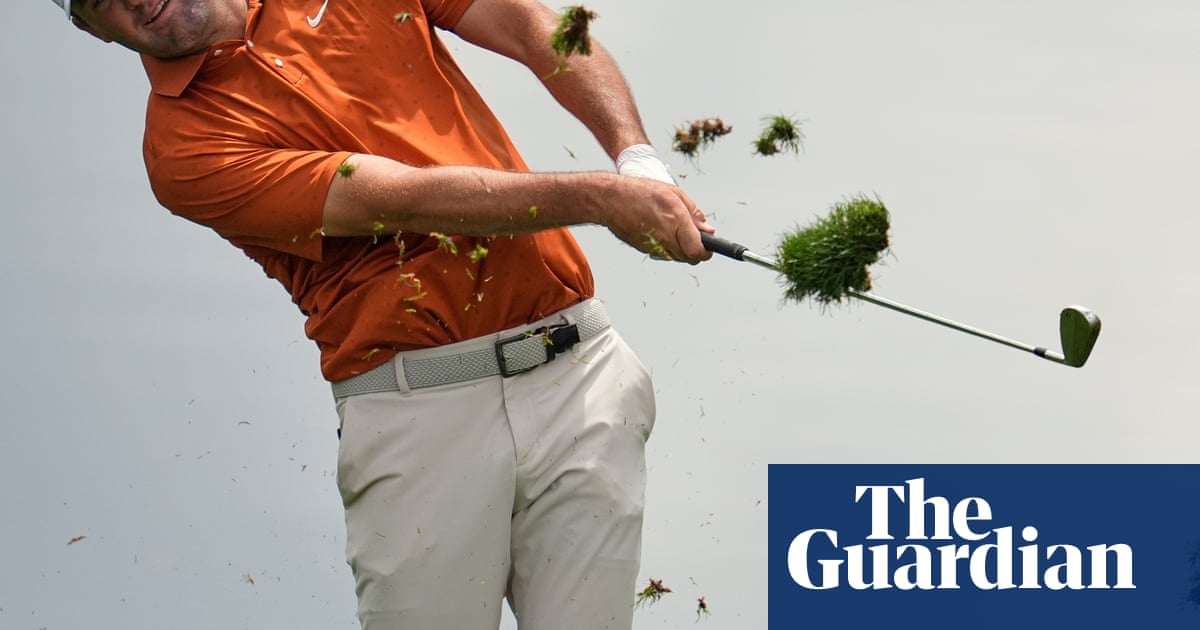Scottie Scheffler has accused the organisers of the US PGA Championship of leaving elements of the major to “chance” after their refusal to implement preferred lies for round one at Quail Hollow. The Charlotte venue was battered by rain between Friday and Wednesday; the upshot was mud balls for several competitors, including Scheffler.
On the 16th hole, his 8th, Scheffler found water from the middle of the fairway and made a double bogey. Scheffler recovered to post a two-under-par 69 but addressed the mud ball issue during media duties.
“I hit in the middle of the fairway, you’ve got mud on your ball and it’s tough to control where it goes after that,” Scheffler said. “It’s frustrating to hit the ball in the middle of the fairway and get mud on it and have no idea where it’s going to go.
“You spend your whole life trying to learn how to control a golf ball and due to a rules decision all of a sudden you have absolutely no control over where that golf ball goes. But I don’t make the rules. I just have to deal with the consequences of those rules.”
Major championship committees are typically reluctant to implement preferred lies due to the perception it would devalue the tournament. Scheffler claimed he was “not surprised” about the policy in North Carolina. He said: “If you’re going to go play links golf, there’s absolutely no reason you should play the ball up. It doesn’t matter how much rain they get. The course could be flooded and the ball is still going bounce because of the way the turf is and the ground underneath the turf.
“In American golf it’s significantly different. When you have overseeded fairways that are not sand capped, there’s going to be a lot of mud on the ball. When you think about the purest test of golf, I don’t personally think that hitting the ball in the middle of the fairway you should get punished for.
“I understand how a golf purist would be, ‘Oh, play it as it lies.’ But I don’t think they understand what it’s like literally working your entire life to learn how to hit a golf ball and control it and hit shots and control distance and all of a sudden due to a rules decision that is completely taken away from us by chance. In golf, there’s enough luck throughout a 72-hole tournament that I don’t think the story should be whether or not the ball is played up or down. I want the purest, fairest test of golf.”
Sign up toThe Recap
The best of our sports journalism from the past seven days and a heads-up on the weekend’s action
after newsletter promotion
Xander Schauffele, who played alongside Scheffler, bemoaned the same scenario. “The mud balls are going to get worse,” said the defending champion. “They’re going to get in that perfect cake zone to where it’s kind of muddy underneath and then picking up mud on the way through. Maybe hit it a little bit lower off the tee, but then unfortunately the problem with hitting it low off the tee is the ball doesn’t carry or roll anywhere, so then you sacrifice distance. It’s a bit of a crapshoot.”
